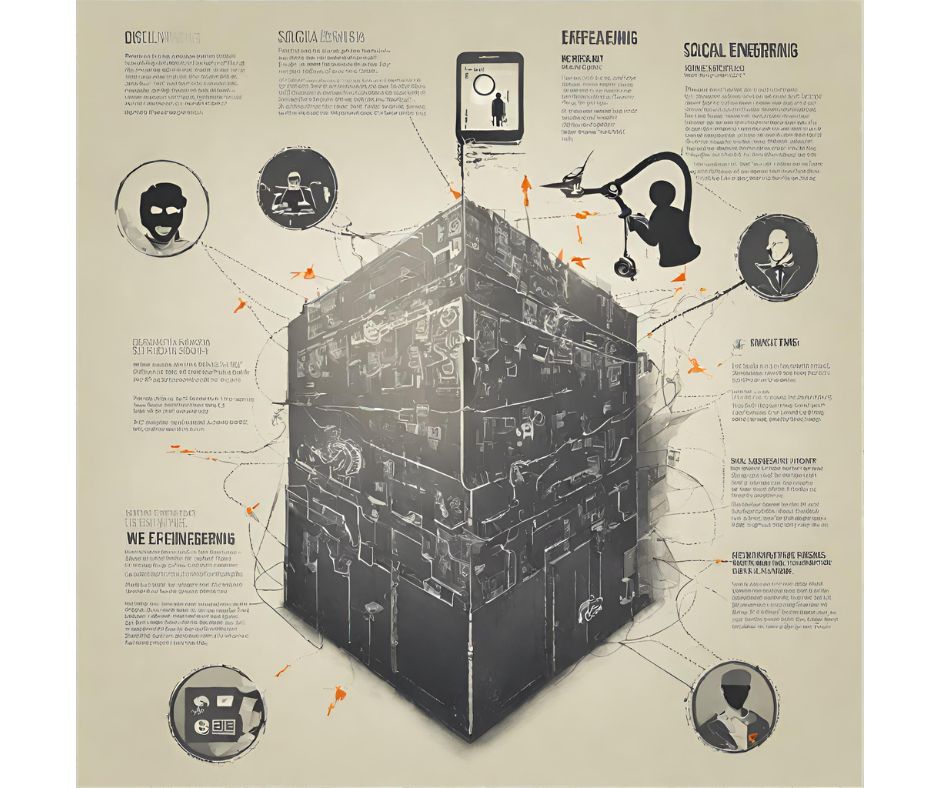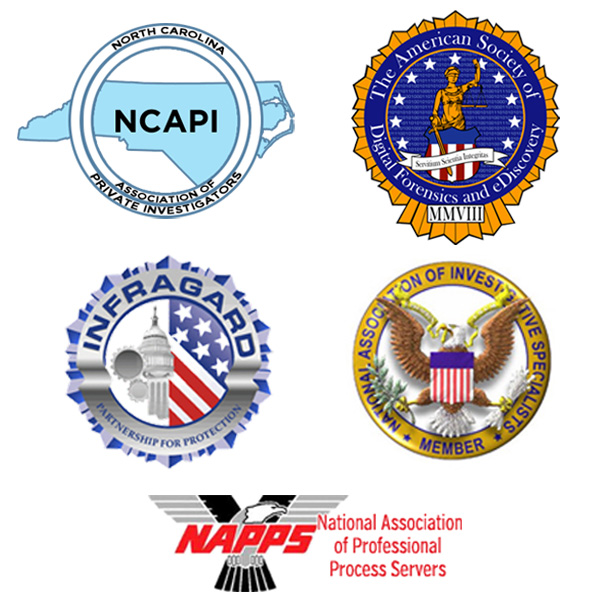Private Investigator Do’s & Don’ts When It Comes To Phone Records
Understanding the do’s and the don’ts of a private investigator’s capabilities is pretty important, especially when it comes to getting your hands on some serious stuff like cell phone records. Now, thanks to TV and movies, you might think PIs have a “backstage pass” to everyone’s personal data, but the real deal is a bit trickier. PI’s operate under some tight legal rules to make sure they’re not stepping on anyone’s privacy toes while snooping around for pertinent case info. Private investigators DO have access to some information that is not readily available to the general public, but it is considered “sensitive” data, Not HIPPA-level sorts of access to people’s most personal information. Most of this sensitive data is provided to licensed investigators, debt collectors, attorneys, and others by data brokers.
Let’s talk about phone data records a sec – they’re like treasure troves of personal info, right? That’s exactly why the law is super strict about protecting them. Private investigators have to tiptoe through these legal hoops, which mean they can’t just snap up your phone records without your say-so or a court’s permission. And even when they do need to dig into that data, they’ve got to go through all the proper legal channels to keep things on the up and up and avoid getting into trouble. Not only that, but when information is obtained in an illegal manner, it cannot be used in any court proceeding. It would be deemed inadmissible and legal action can be taken against the private investigator and their client. Of course, private detectives are not normally attorneys, so none of what’s written here should be considered legal advice.
What Can Private Investigators Do and Are There Limitations?
So here’s the lowdown on private investigators… They’re like the Magnum’s, Rockford’s, and the Sherlock’s of the real world, but with a bunch of legal rules to follow. These guys work hard to gather info while staying on the right side of the law and keeping things ethical.

Licensed Private Investigator
First things first, your PI needs to be legit – licensed, insured and experienced. That means jumping through some hoops set by the state, which usually includes background checks, fingerprinting, and often times special training and a good grasp of the state and federal laws. This ensures they know the ropes when it comes to snooping around legally. If the private detective happens to operate in a state that does not require licensing, they should be vetted thoroughly before considering using them.
Now, when it comes to snooping, PIs have to play by the rules. They can’t just go all “Mission Impossible” on someone’s phone records without permission or a green light from the court. And forget about tapping into private convos or sneaking onto private property – that’s a big no-no.
Instead, they use legit methods like checking public records, chatting up folks for info, doing a bit of surveillance, and hitting up the internet for clues. Oh, and they can figure out who your phone carrier is, but anything beyond that without the right permission is a big-time federal offense.
Long story short, private investigators might be like modern-day detectives, but they’ve got a whole bunch of legal hoops to jump through to make sure they’re doing their job the right way – legally and ethically.
I say all of that to say this… There are opportunities when call logs, text messaging, email, images, and more can be obtained. Digital Forensics is another way to acquire this sort of data and information without having to formally request it from the carrier or service provider. Digital Forensics can also provide the ability to recover deleted text messages, call logs, email, images, etc. However, this must be performed in a legal and ethical manner as well.
Obtaining Phone Records – The Do’s and Don’ts
What is pretexting and is it legal?
Alright, let’s talk about pretexting – it’s basically using trickery to obtain personal and private information, such as phone records. In the modern cyber world it’s called Social Engineering. Hackers use social engineering every day to gain access to systems and information that they are not privy to. But I digress… Picture this: someone pretending to be you to sneakily snatch up your telephone info. Sneaky, right? How would they do it? All one would need is some of that sensitive information we spoke of earlier i.e. full name, date of birth, social security number, mother’s maiden name, etc. This sensitive information can be obtained from say, the client, if it’s their spouse. Or it can be obtained through specialized databases or even the Dark Web. Then the perp or hacker can call the phone carrier and gain access to records illegally. There are times when pretexting can be legally utilized, but that’s a whole different article. Here’s what you need to know:

1. Legalities: Turns out, this whole pretexting business is a big no-no according to federal law, specifically the Telephone Records and Privacy Protection Act of 2006. That means if you or anyone else tries to pull off this stunt, you’re looking at some serious trouble with the law and probably jail time.
2. Possible Consequences: If a private investigator gets caught using pretexting to dig up someone’s phone records without the go-ahead from the person or a legit court order, they’re in for a world of hurt – and anyone who hires them is in hot water too. So, if you’re thinking about hiring a private investigator, make sure they’re playing by the rules and not resorting to any shady tactics to get their hands on phone records or other confidential information. Trust me, you don’t want to get caught up in any illegal shenanigans.
Can Technology Be Used To Obtain Phone Records?
So, let’s discuss electronic surveillance a little bit – it’s basically keeping tabs on (intercepting) phone convos or the data zipping around on our phones. Now, while tech has come a long way, private investigators still gotta play by the rules.
Take wiretapping, for example. That’s when someone listens in on phone calls, and let me tell you, it’s no joke. You need to jump through some legal hoops, like getting a court order, before you can do that stuff. Messing around without one? Yeah, that’s a fast track to getting slapped with some serious legal trouble – a US Title 18 violation.
In essence, no one is allowed to grab information in motion without some sort of consent or warrant or legal order.

But here’s the deal and remember what I spoke of earlier (Digital Forensics) – investigators can still check out call logs or messages using some fancy tools. This information and data that is stored on the electronic device, NOT in motion. See the difference? But here’s the catch: they got to have the green light first. That means getting the thumbs-up from the phone owner or having some legal docs saying it’s all good.
Now, onto hacking. Trying to sneak into someone’s phone records? Yeah, that’s a big fat nope. Not only is it against the law, but it’s also a total invasion of privacy. So, if you’re thinking about getting your hands on some specific phone records, remember – hacking is a big red flag. Stick to the straight and narrow, folks, or you could find yourself in some serious trouble with the law.
Can Phone Records Be Used, Legally, In an Investigation or Court Proceeding?
Phone records can be like gold in legal battles and private investigations – they can tell us a lot about a person’s calling habits, which can be super helpful in cases of missing persons or suspected cheating. Imagine this: a private investigator tracking calls to show who someone’s been chatting with, or if they’re contacting the same number over and over again. What if you were able to get, not only the communications, but also the Call Detail Records (CDRs)? Now you have the communication and precise geolocations of the phone, at any given time. This rich set of evidence could be enough to solve the entire case.
Here’s the catch – you can’t just waltz in and grab those records without the right paperwork. Nope, you need proper authorization, like a subpoena or the account holder’s okay, to make sure everything’s on the up and up. And in serious situations like kidnappings or other major crimes, law enforcement might have a bit more leeway in getting their hands on those records to keep everyone’s personal information safe.
So, bottom line… If you’re thinking about snagging some phone records, best make sure you’re doing it the right way – legally and ethically. That means getting the go ahead from the phone owner or having the proper legal documents in hand. Otherwise, you could find yourself in some real trouble. Let’s say you or your investigator decides to get phone records by illegal means – not a smart move. Using shady tactics like pretending to be someone else to nab personal info? Yeah, that’s a big-time federal crime, no joke. Not only could you end up facing some serious legal trouble, but you’re also throwing trust in the investigative process right out the window. Plus, there’s a real risk of innocent folks getting dragged into the mess or evidence in legal cases no longer being admissible in court.
An example of using cell phone records for an investigation, in a child custody, matter would be to look for evidence of inappropriate communications or viewing of material that is dangerous for the child’s wellbeing. These sort of domestic investigations can be very complex and can prove to be very difficult to get access to cell phone records or the device itself for a cell phone forensics examination.
We won’t dive into the specifics, here, but cell phone records, call detail records, cell phone data and more can be very useful in infidelity and adultery matters.
Are People’s Digital Footprints Discoverable and Useful?
In today’s digital world, private investigators are basically online sleuths, sifting through digital breadcrumbs to uncover clues. And guess what? The internet is their turf, especially hangouts like Google and social media spots.
Here’s the scoop: PIs are hitting up search engines to track down web activities and diving into social media platforms to find all sorts of interesting tidbits – we’re talking profiles, posts, and connections. It’s like peeling back layers to get a sneak peek into someone’s life.
But they’re not just browsing Facebook for kicks. PIs are on a mission, analyzing internet footprints to see what someone’s been getting up to online – from their hangouts on different websites to their latest Instagram selfies.
And let’s talk social media – platforms like Facebook, Twitter, and Instagram are a goldmine of info. People spill the beans on there all the time, sometimes without even realizing it’s all out there for the world to see.
Savvy PIs can take their online digging to the next level, using all sorts of fancy techniques like OSINT expertise, Google Dorking, and even venturing into the Deep & Dark Webs to uncover the goods. But here’s the catch: PIs have to follow the rules. They’ve got to walk the fine line between what’s legal and what’s ethical, making sure they’re not trampling on anyone’s privacy or rights along the way. It’s all about doing the detective work while playing by the book.





Speak Your Mind